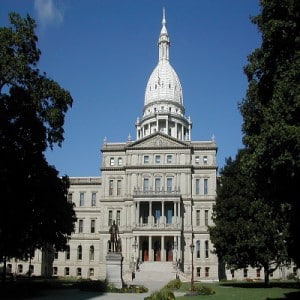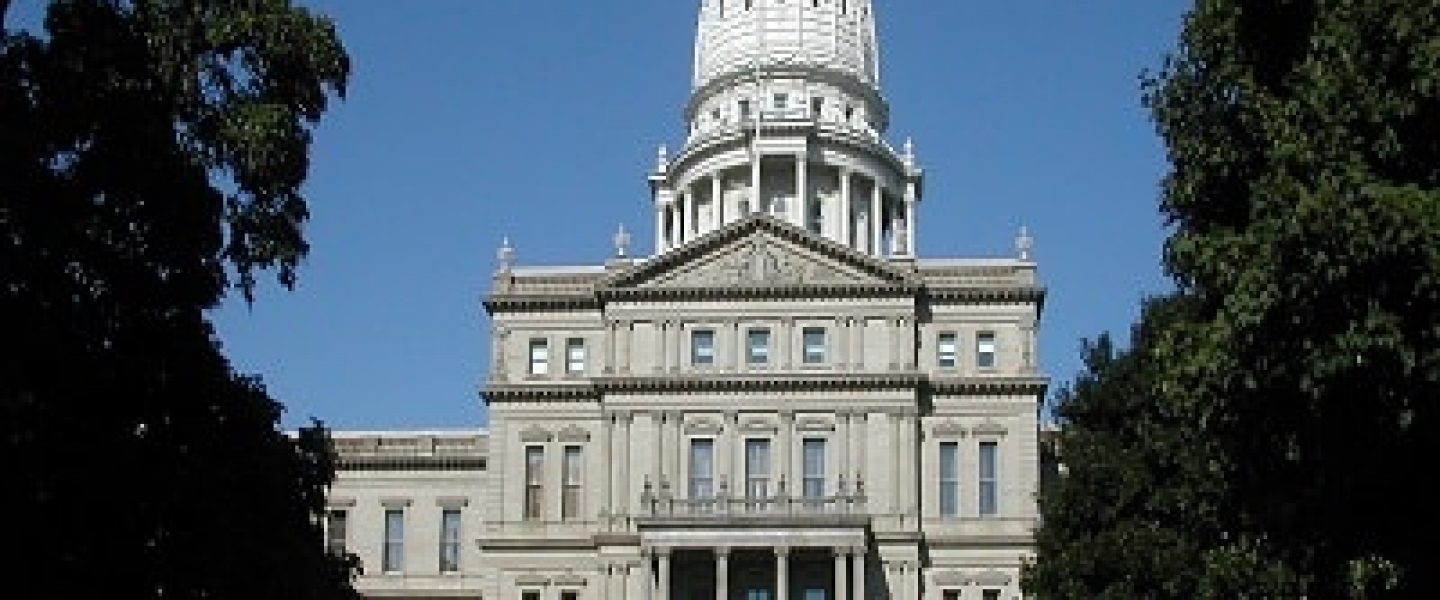 The House Elections Committee ended their March meeting without voting on a controversial bill aimed at ending a 30-year old right of process for Michigan petitioning groups. Most controversial is the notion that the bill’s provisions would alter the rules governing current marijuana legalization and anti-fracking ballot committee efforts.
The House Elections Committee ended their March meeting without voting on a controversial bill aimed at ending a 30-year old right of process for Michigan petitioning groups. Most controversial is the notion that the bill’s provisions would alter the rules governing current marijuana legalization and anti-fracking ballot committee efforts.
SB 776 was introduced by Genesee County Senator Robertson. It would end the policy of giving a greater-than 180 day period in which signatures can be collected on petitions aimed at placing proposals on the Michigan ballot. The currently lawful process, known as ‘rebuttable presumption,’ involves proving that citizens who signatures fall outside that 180-day window were both: 1. registered to vote during that 180-day period and 2. registered to vote at the time they signed the petition.
Sen. Robertson’s bill would eliminate the opportunity to invoke the procedure, essentially limiting all petitions to a rock-solid 180 day period.
Concerns about the effort to squash the current petition campaigns, including the MILegalize marijuana legalization proposal, were amplified when the Senate voted on March 10 to remove a restriction in SB 776 that would have stated its effective date is January of 2017. The removed language is: “Enacting section 1. This amendatory act takes effect January 1, 2017. ” Additionally, the Senate’s Republican majority voted to apply ‘Immediate Effect’ on SB 776 when the body approved the bill.
Original SB 776 language HERE.
SB 776, as passed by the Senate is HERE.
MILegalize is one of three marijuana legalization proposals approved to circulate petitions by the state. The petition drive began on June 25, 2015, and has collected more than a quarter-million signatures on petitions. Several other petition organizations, including anti-fracking groups, are in various stages of collecting signatures. Support for SB 776 supposedly comes from oil and gas industry and law enforcement community lobbyists.
A representative from Sen. Robertson’s office tried to portray the bill as offering a simple “clarification” in law. Experts and activists testifying contradicted that characterization.
Four attending persons gave testimony during the hour-and-a-quarter session. Two speakers representing the anti-fracking petition groups spoke in opposition to the bill, as did Jeffrey Hank of MILegalize and this author, Rick Thompson, who spoke on behalf of MINORML.
The Committee also took testimony from Board of State Canvassers (BOSC) leader Mr. Thomas, and John Pirich, a professional lobbyist who admitted he had clients who were advocates of petitioning, and those who want to impede the process. Pirich’s testimony about the history of the 30-year old policy, and the opportunity for the BOSC to make changes, were challenged by Representatives and overruled by Mr. Thomas on multiple issues.
Other groups in attendance who were not able to deliver testimony due to time constraints include the ACLU of Michigan and the Sierra Club.
House Elections Committee members include Chairwoman Rep. Lisa Lyons; Rep. Jeff Irwin from Ann Arbor; and Rep. Klint Kesto.
Committee members expressed their belief that the bill will come for a vote during the Committee’s next meeting on March 23.
Source: The Compassion Chronicles







